Creating a Monthly Budget

A Monthly Budget Worksheet can Help When it comes to getting your personal debt under control, a good place to begin is with the basics of a household or personal budget. Creating a monthly budget helps you identify where you may be overspending and can also help you in developing an overall financial plan. Building a budget should start with a review of your check book register and bank statements. Look for the recurring expenses that happen every month or every quarter. Things like rent, utilities, and transportation are only a part of your ongoing expenses. You may be surprised at how the daily trips to the convenience store or eating out for lunch can really add up. Once you know what you are actually spending, you will be able to set up a monthly budget template as a guide to follow in keeping your expenses under control. You may find that once you have a budget in place and more awareness of your spending habits, you will make some changes to your behavior that assure you will have more money left at the end of the month. For your convenience we have attached a link to a budget worksheet that you can print for your personal use. At Harold Shepley & Associates, LLC, we are full service debt relief law firm, and we’re here to help. Call us today at 877-827-9006, or visit our Contact page for your FREE consultation. Monthly Budgeting Tips When budgeting for utilities you may find it is easier to set up a monthly budget based on the yearly expense. Some utility companies will set you up on a budget plan that will average your yearly expense and set a monthly payment that remains the same throughout the year. Remember, when setting up a monthly budget to include expenses such as Christmas, birthdays, holiday spending, and vehicle expenses. It is important to set aside money each month so when the time comes you will have the money to buy gifts or buy tires for your vehicle. Building an emergency fund should be a priority over expenses such as dining out or entertainment. Having an emergency fund can be the difference between falling behind on your mortgage and paying for groceries if you were to have an accident or medical issue that would prevent you from working for a short period of time. You may find it helpful to have a separate savings account to deposit the money into and one that is not connected to your debit card and easily accessible. After you have a budget in place and an emergency fund set up, it is time to think about saving for retirement and children’s college funds. The earlier you start, the more you will be able to save. If you receive a tax refund or a yearly bonus at work, you can deposit it into either fund to help offset the monthly expense of your savings effort. Harold Shepley and Associates Can Help If you’ve fallen behind on your payments and your efforts to create a monthly budget simply serve to highlight the difficulties of your situation, it may be time to get professional help. At Harold Shepley and Associates, LLC, we have experience dealing with situations of personal and household every day. We are a full service law firm that is client-oriented and will work hard to meet your personal needs in resolving debt. Call us today at 877-827-9006, or complete our easy to use contact form. We’re ready to help.
Does Debt Consolidation Work?
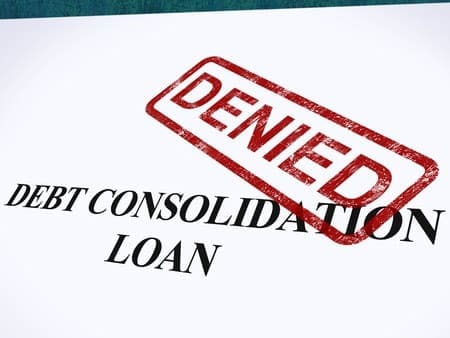
Be Careful – You Cannot Borrow Your Way Out of Debt! If you’re reading this, it’s likely you’ve been researching ways to get out of debt, or to improve your financial situation with regard to debt. In this article, we’ll consider how debt consolidation works. To begin, let’s start with the basics, like the difference between debt consolidation and debt negotiation. Debt Consolidation refers to the act of grouping all your outstanding debts into one single debt, making payments more manageable as you work to reduce and eliminate what you owe. Debt Negotiation is when an attorney steps in to negotiate with your creditors and reduce your total debt load. To learn more, visit our Debt Negotiation page. Debt Consolidation Loans Debt consolidation loans are one of the most common solutions people think of when they fall victim to financial hardship. Unfortunately, people who choose debt consolidation often find themselves with a larger debt and in deeper financial trouble than they were before the loan. The reason this happens is that you can NOT borrow your way out of debt. A debt consolidation loan will not reduce the amount you owe. You will pay on the entire principal and will be paying far more interest over a longer period of time. Unfortunately, when you try to consolidate debt, it is often nothing more than a very expensive way to cover up an underlying problem. At Harold Shepley & Associates, we focus on solving your debt problems, not merely covering them up or allowing you to fall victim to so-called solutions that only worsen your situation. To learn more call us at 877-827-9006, or complete our easy to use contact form. We’re ready to help. Home Equity Loans and Debt Consolidation When taking out a debt consolidation loan, you will most often be required to secure the loan against some form of asset, usually your home. This is called a home equity loan or home equity line of credit (also known as HELOC). You may be thinking: How do I qualify for a home equity loan to consolidate my debt? To qualify for these types of loans you must have a home and you must still have equity in your home. In other words, the value of the home must be worth more than what you owe. Assuming you manage to get a home equity loan, you have now put your unsecured debt into a secured loan. That means you have put your personal assets at risk. If you run into further difficulty paying on the new loan, you run the risk of a foreclosure on your home. Personal Secured and Unsecured Debt Consolidation Next, we’ll review unsecured consolidation verses secured consolidation loans. When you put something up that you own (such as a car, property, home, computer, TV etc.), your turn your debt consolidation into a secured loan. This is to provide collateral if you fail to make payment to the loan company. If you take out an unsecured loan, you do not put up any collateral on the loan. However, this type of loan has a higher interest rate and often comes with hefty penalties if you do not pay on time. With both types of consolidation loans, you run risks. There is the risk of losing your collateral if you are unable to pay on the new loan and the risk of going even deeper into debt if your loan is unsecured. Credit Card Balance Transfer Another way people consolidate debt is through credit card balance transfers. If you are struggling to pay credit card debt and other bank loans, credit card companies try to attract new customers by offering zero or a low-percent interest on balance transfers. Ideally, you want to transfer balances from credit cards with high interest rates into a card with one these offers. Transferring balances can help short term, as long as you carefully keep track of the promotions and the end date when the interest rate will substantially jump. The promotions are to entice you to sign up with the hopes that you forget that the low interest offer only lasts for so long. After the introductory period is over, the rate will increase and so will all the debt that was transferred. Dealing with Debt Successfully When choosing to consolidate debt, you are simply shuffling the debt around so that it becomes easier to pay.While this has some limited value, most of the time you are not fixing the problem. Typically what happens is this: once you consolidate the debt, you discover you now have more spending power. You have credit cards with space to charge and once again you find yourself running your credit cards up to the max. Now you have both a consolidation loan and more credit card debt to pay. If you were having trouble paying your previous debt, how are you going to repay the combination of your new loan and your newly maxed out credit cards? Harold Shepley and Associates can Help You aren’t alone. If you are having trouble paying bills and considering a debt consolidation loan, call us today at 877-827-9006, or complete our easy to use contact form. We’re ready to help. At Harold Shepley & Associations, our experienced attorneys will assist you with real debt relief options, without putting your home and property at risk. We’ll get you out of debt once and for all. We not only eliminate the interest rate, we reduce the actual balance owed to the creditor and arrange for an affordable payment plan. We can do this for clients located anywhere in the United States. So what are you waiting for? Call us today at 877-827-9006.
Chapter 13 Bankruptcy
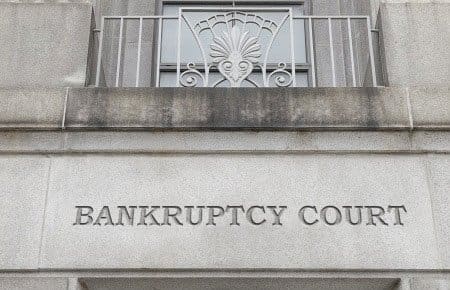
Don’t Qualify for Chapter 7 Bankruptcy? Consider Chapter 13 Chapter 13 bankruptcy is a payment plan that allows you to pay back some, but not necessarily all, of your debt. Chapter 13 is often a good solution for people who do not qualify for Chapter 7 because their incomes are too high (i.e., above the annual median income for a household of the same size). However, Chapter 13 is not limited to high-income earners. If you are behind on payments to a secured creditor, such as a mortgage lender or car loan provider, Chapter 13 may allow you to keep your car or home. How does Chapter 13 Bankruptcy work? If you can afford to make your current payments and pay any accumulated back payments over a 36 to 60 month period, you can keep your house or car. As the debtor, you must first submit a repayment plan for Court approval. The repayment plan does not discharge your unsecured debt immediately, but allows you to develop a plan to repay secured debt and possibly some or all of your unsecured debt. The repayment plan depends on your income and debt during the 36 to 60 month period. The plan is based on your income and how much disposable income you have remaining each month after paying all essential household bills. An individual, husband and wife, or a self employed business owner with regular income may file a Chapter 13 bankruptcy in Pennsylvania provided your debt amounts to less than $394,725 of unsecured debts and $1,184,200 in secured debts. Interested in learning more? Contact Harold Shepley and Associates today by calling 877-827-9006, or visit our Contact Us page. Under Chapter 13, you have the Opportunity to: Reorganize your situation, possibly reducing certain secured debt, Reducing or eliminating unsecured debt, Surrendering certain assets, Rejecting or assuming certain leases, Removing judicial liens, Requiring utility companies to restore service, Stopping wage garnishments including the IRS, Reducing certain taxes, Stopping certain law suits, and Stopping foreclosures and sheriff sales Another advantage of Chapter 13 is the possibility to modify or totally eliminate wholly unsecured second and third mortgages on your principal residence. You can also attempt to lower the principal balance of a first, second or third mortgage or modify the terms for real estate that is not your principal residence. Also, in certain situations you may be able to reduce the principal balance of your car debt, as well as the monthly payments. Discharge Your Debt, a Fresh Start with Creditors Once you have completed payments under the Chapter 13 plan, the Court will enter a discharge order which will allow you a fresh start with future creditors. This eliminates dischargeable debts, requiring creditors to remove the debts from your credit report, discontinue pending law suits, and dispose of debts as ongoing obligations. Debts NOT dischargeable under Chapter 13 include: All domestic support obligations, Educational loans (except for undue hardship, injury or death caused by a debtor’s operation of a vehicle), Vessel or aircraft if debtor was intoxicated or impaired from use of alcohol, drugs or other substance, Certain criminal fines and restitution, Certain taxes, Debts incurred by fraud, Restitution or damages awarded in a civil action as a result of willful or malicious injury that caused personal injury or death of an individual. Harold Shepley and Associates can Help You aren’t alone. If you need help understanding Chapter 13 Bankruptcy in Pennsylvania, contact Harold Shepley and Associates, LLC. We have experience dealing with these situations every day. We are a full service law firm that is client-oriented and will work hard to meet your personal needs in resolving debt. Call us today at 877-827-9006, or complete our easy to use contact form. We’re ready to help.
Student Loan Debt

Are You Concerned about Student Loan Debt? The student loan industry has undergone major changes and reform since 2009. While private and federal student loans still exist, most borrowers currently have federal student loans through the US Department of Education. One benefit of having federal student loans is that once you graduate from college, you generally have a six month grace period before beginning your re-payment. The six month grace period is intended to give you a little time to get a job and get started on the right foot. It is also enough time to do what is called a Loan Consolidation and lump all of your student loans into a single, loan where the payments may be more manageable. Student Loan Consolidation A loan consolidation brings with it the flexibility or a range of repayment plans. Standard Repayment Plan-you pay a fixed amount over 10 years (up to 30 years for a consolidated loan) Graduated Repayment Plan-you pay a lower amount at first and your payments gradually increase over 10 years (up to 30 years for a consolidated loan) Extended Repayment Plan-your payments can be fixed or graduated with repayment time of up to 25 years. Income Based Repayment Plan (IBR)- your payments will be capped at 10-15% of your income depending on the loans you have and any remaining balance will be forgiven after 20-25 years depending on the types of loans you have. You are required to submit annual renewal documentation to determine your monthly payment for the year. Pay as you Earn Repayment Plan- your maximum monthly payments will be 10% of your income and any remaining balance will be forgiven after 20 years. You are required to submit annual renewal documentation to determine your monthly payment for the year. Revised Pay as you Earn Repayment Plan- your maximum monthly payments will be 10% of your income and any remaining balance will be forgiven after 20-25 years depending on your loans. You spouse’s loans may be considered in the calculation whether you file a joint tax return or file separately. You are required to submit annual renewal documentation to determine your monthly payment for the year. Income Contingent Repayment Plan-your monthly payment will be the lesser of 20% of discretionary income or the amount you would pay on a repayment plan with a fixed payment over 12 years, adjusted according to your income. Any remaining balance will be forgiven after 25 years. You are required to submit annual renewal documentation to determine your monthly payment for the year. Income Sensitive Repayment Plan-your monthly is based on your annual income and you pay up to 15 years and the amount you pay varies from lender to lender. Student Debt Relief If you feel overwhelmed by student debt, there is hope. First, let’s lay some ground rules. As borrower, you NEVER want to get to the point of being in default on a student loan. If you are in default, the lender has the ability to demand the full balance to be paid immediately, and that can cause massive damage to your credit score! If you are unable to meet the demand for immediate payment, the lender can seek legal recourse. They have the ability to contact your employer and garnish your wages up to 15% each paycheck until the balance is paid. They also have the ability to seize any tax return you may have received. In general, you can’t declare bankruptcy with regard to a student loan. Some exceptions do apply, but for the most part it is very difficult to have a student loan discharged through bankruptcy. Be Proactive The most important thing you can do as a student loan borrower is be proactive. Call your lender and discuss these options with them. Whether it be a federal or private student loan, the lenders generally want to work with you to ensure they receive payment. Discuss the above mentioned repayment plans with them and determine which option is best for you. Be aware that the eligibility in each program is determined by numerous facts specific to your personal portfolio. It is important to know your portfolio to determine your eligibility. Since the student loan overhaul began, the user friendliness of the student loan websites and the eligibility determination has become less of a burden on the borrower. That’s good for you, if you know how things are changing and how those changes are of benefit to you. Harold Shepley & Associates Can Help You aren’t alone. If you need help with Student Debt, contact Harold Shepley and Associates, LLC. We have experience dealing with these situations every day. We are a full service law firm that can help with debt negotiation, is client-oriented, and will work hard to meet your personal needs in resolving debt. Call us today at 877-827-9006, or complete our easy to use contact form. We’re ready to help.
Prenuptial Agreements

Prenups in Pennsylvania A Prenuptial Agreement (entered into before marriage) is a contract between two people who are anticipating marriage. It outlines either generally, or in great detail, how property is categorized and divided in case of a divorce. In Pennsylvania, marital property is defined in as, “all property acquired by either party during the marriage and the increase in value of any non-marital property” (Reference 23 Pa. C.S.A. §3501) There are statutory exceptions that exclude certain types of property from being considered in the prenup. One of these exceptions is “property excluded by valid agreement of the parties entered into before, during or after the marriage” This allows the parties to contract out of the marital property distribution in a prenup agreement. (Reference 23. Pa. C.S.A. §3501(a)(2)) A professionally crafted prenuptial agreement allows both parties to retain all of their individual property and its increase in value. Your prenuptial agreement can: Define how marital property will be divided Set terms for spousal support and/or alimony Lay out how a divorce will be filed and finalized, eliminating the need for litigation. Debt Can Be Addressed in a Prenuptial Agreement More often than not, a married couple will acquire debt during a marriage, some joint, some individual. Some married couples will acquire vast debt. Like assets, debt can also be dealt with in a prenuptial agreement. This can be especially important if one party, or the other, brings significant debt into the marriage. There are two basic areas that must be addressed for a prenuptial agreement to be deemed valid. First is full disclosure of assets and debts. If one party does not provide the other with a full and accurate picture of their financial situation, the contract can be determined to be invalid because the other party lacked this information. This means you cannot simply say, “I get to keep all my stuff no matter what it is, how much it is worth or where it is at.” The second is access to separate counsel. Both parties must have full opportunity to seek advice of separate attorneys prior to signing the prenuptial agreement. This means you cannot give a prenuptial agreement to the other party the morning of the wedding and ask them to sign it and expect it to be considered a valid contract. Prenuptial agreements, traditionally, were considered as only for extremely wealthy people or celebrities.With the increase in the divorce rate in the United States, prenups are now an effective tool for everyone to protect property rights. There is also the perception that the party who requests a prenuptial agreement is expecting the marriage to end in divorce. A prenuptial agreement should be considered as nothing more than an insurance policy to protect both parties and the assets and income that they have worked hard to create. Harold Shepley & Associates Can Help At Harold Shepley and Associates, LLC, we have experience dealing with situations of both debt and bankruptcy and divorce. We are a full-service law firm that is client-oriented and will work hard to meet your personal needs in resolving debt. Call us today at 877-827-9006, or complete our easy to use contact form. We’re ready to help.
Served With a Lawsuit?
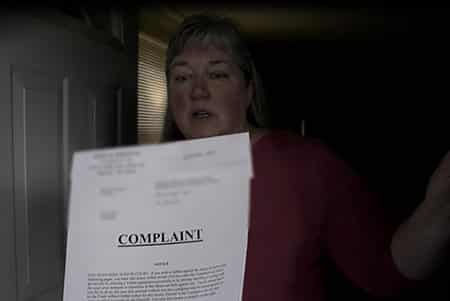
Being Sued – What Should You Do? When the sheriff shows up at your home to serve you with a civil lawsuit, it can be an extremely stressful event. Don’t worry, in cases of a civil lawsuit or other debt related issues, our full service debt relief law firm is ready to stand by your side. Unlike other debt relief companies, we offer the complete services of an experienced legal practice and we can assist you if you receive a lawsuit in connection with your debt. We negotiate and get the best settlement possible for you on your accounts, and we have the ability to put forth any and all defenses you may have in relation to the claim. We will ensure your creditors provide the information they are required to by law and at the same time buy you time to build funds for a settlement. We have been successful getting cases dismissed which result in no liability on you. Contact us immediately upon receiving a lawsuit as there are time sensitive deadlines we need to meet to protect your interests. Call 877-827-9006 today. We’re ready to help. Why did I Receive a Lawsuit on this Account? We have been working on behalf of people just like you for many years. Over all that time we have not been able to pinpoint an exact reason why the creditor decided to file suit. Every creditor has different policies on when and if they sue and those policies seem to change from year to year. There is absolutely no way to predict or explain why your particular creditor has proceeded in the fashion that it has, but rest assured you are in good hands with Harold Shepley and Associates, LLC. The creditors have thousands of people working for them across the country, you deserve to have us working for you! More information about debt relief is available on our Debt Negotiation page. I Received a Lawsuit. Why Should I Defend it? The decision to defend or not defend is up to you, but without question the best choice is to defend your lawsuit. At Harold Shepley and Associates LLC, our Litigation Department has the experience you need to navigate your lawsuit through the Court System and obtain the best result. We understand the importance of your situation and we keep the cost at a minimum while obtaining the best possible outcome. If you choose to defend we will work to prevent a legal judgment from being entered against you. If you choose to not defend, your account will go to a legal judgment unless a response is formally entered with the Court or you appear for your hearing (depending on which Court your suit was filed in). If your lawsuit goes to a judgment, the creditors have enhanced rights on your account and have the right to move forward on that judgment. That is why you should contact Harold Shepley and Associates, LLC and defend any and all lawsuits you may receive. here is no reason the stress of a lawsuit should ruin your life. Talk to our debt relief specialists, the consultation is free. Call us today at 877-827-9006 or use our easy-to-complete contact form. Our attorneys will be delighted to speak with you. What Can a Creditor Do With a Legal Judgment? As stated above, a creditor has enhanced rights on your account once a judgment is obtained. A creditor, using the Court System, can execute on any judgment they have against you. Typically an execution will result in the creditor finding and placing a “freeze” on your bank account. During this time you may not be able to access your bank account and some of your funds may be garnished. In addition, any judgment against you will result in a judgment lien against any property you own which will place even more power with the creditor. At Harold Shepley and Associates, LLC, we understand the needs of our clients and we work to prevent judgments from being entered against you. This is why we highly recommend you defend any and all lawsuits you may receive. If you currently have a judgment, it is not too late. Contact us and we will provide a comprehensive outlook on your individual situation and help you deal with any debt related issues you may have. Why Choose Harold Shepley and Associates, LLC? At Harold Shepley and Associates, LLC, we have over eleven years of experience dealing with the issues you are currently facing. We are a full service debt relief Law Firm that is client-oriented and will work hard to meet your personal needs in this situation. Yes, there are other companies out there to help, but we truly believe that there is no other Law Firm that so completely meets the needs of people overwhelmed by debt as we do. Not only will we work towards settling your accounts and saving you money, we will serve your legal needs as it relates to any lawsuit you receive or in any other way in which we can provide the best help possible to you. Call us today at 877-827-9006, or complete our easy to use contact form. We’re ready to help.
Do I Need a Will?

Yes, a Legal Will is Essential for Your Estate For many people, the thought of a Will brings with it unpleasant thoughts of death. Many people think, “I’m in good health, why do I need to think about having a Will?” Certainly, wills are very easy to put on the back-burner for another day. Unfortunately, death can stalk even the healthiest and youngest of us, and preparing a Will allows you to control what happens to the property you’ve acquired over your lifetime – no matter how much, or how little, you may own. Even a young person at the beginning of their career, without a spouse or direct dependents, may still have prized possessions, a beloved pet, a favorite collection, and other meaningful memorabilia that they would want to leave to friends and family. A valid Will is critical for those of us who own homes, have significant property and savings, and for whom the welfare of our spouse and children are important. Talking to an attorney about a Will is a good idea for anyone. To learn more about why a valid Will is important for you personally, call us at 877-827-9006. What is a Will? A Will, in its simplest form, tells your survivors what you wish to do with your property after you die. You should never assume that, “My wife will know what to do with my property” or “My kids can split my property – they get along well and won’t fight over my stuff.” At Harold Shepley & Associates, we have heard these statements from clients in the past and, unfortunately, have been there when they proved not to be true. Beyond having a Will to make sure your property is disposed of as you wish, it can also prevent fights between family members and make things much easier on your survivors. A Will names an Executor to act as the manager of your estate and to dispose of your property. Without a Will just about anyone can petition a court to be named as an Executor. If you have a Will, you name the person whom you trust to manage your estate. What if I Don’t Have a Will? If you die and do not have a Will, your property can be distributed by Pennsylvania Intestacy Laws, 20 Pa. C.S.A. §2101 – §2110. This means that the Commonwealth of Pennsylvania will decide who receives your property, not you. For example some people may have children who they don’t have a relationship with and may not wish them to receive property when they pass, or may want them to receive less than their other children. Without a Will all children would share equally in the estate. Having a Will also makes it easier on your survivors. After going through the trauma of someone’s death, many people don’t know what to do with the property of the deceased. A Will is their guide on what the deceased’s wishes were for their property. Your Will and Your Estate Proper estate planning can also help avoid paying unnecessary taxes; can provide care for minor children; can provide care for pets; decide who will act as your Executor to enact your final wishes and fund charitable causes etc. No matter how much property you have, having a Will can help you enact your last wishes regarding the disposition of your property and help your survivors dispose of your property as you wished. Although Pennsylvania recognizes Holographic Wills (those prepared and signed by the deceased), the most common Will today, and easiest to administer, is the Self Proving Will. A Self Proving Will has two (2) witnesses who have signed affidavits in front of a Notary. This requires no further affidavits or witness testimony to be submitted for administration. “An ounce of prevention is worth a pound of cure!” Why Choose Harold Shepley and Associates, LLC? At Harold Shepley and Associates, LLC, we have over eleven years of experience dealing with the issues you are currently facing. We are a full service Law Firm that is client-oriented and will work hard to meet your personal needs in this situation. Call us today at 877-827-9006, or complete our easy to use contact form. We’re ready to help.
What is a Judgment?

Has a Civil Action been Taken against You? Judgments are the result of a civil action filed in a court. They are usually for the collection of money owed by one party to another. Civil actions can start only within certain time limits. For example: The time limitation for a written or contract is four years. A contract for the sale of goods is four years. Injury to personal property is two years. Any other action not otherwise limited is six years. Unless specifically agreed upon by both parties, the legal interest rate on a judgment is 6% per year. Money Judgment A money judgment may be enforced against your personal property within 20 years after the entry of the judgment. In these cases you are known as the “judgment debtor” and your creditors are referred to as “judgment creditors.” A money judgment may also become a lien on your real property in any county, after the entry into the record of the prothonotary’s office in the county where the property is located. Such a lien is enforceable for a period of five years which may be revived before the expiration of the five year period. Generally, all of your “non-exempt” tangible or intangible personal property and real property is subject to a judgment by way of a writ of execution. You may claim an exemption of certain personal property from attachment or execution from the payment of debts, but these exemptions are quite limited. Through a writ of execution, your creditors can ask the county sheriff to attach any personal or real property belonging to the creditor. The writ directs the sheriff to put a levy on your property and sell it at public auction to pay for the judgment amount (if the amount is not paid before the auction.) Certain property, such as wages, child support, welfare benefits and Social Security payments cannot be taken. Talking to an attorney about a judgment is critical to preserving your wealth and your rights. Call us at 877-827-9006. Judgments Taken by Default Many judgments are taken by a creditor through default. This means that you failed to respond to the complaint after service or failed to appear at a prescheduled court hearing, even if there are good reasons that the judgment should not be granted (i.e., validity of the debt, improper service, unfair debt collection, etc.). Other judgments can be entered in Pennsylvania by transfer of a judgment from another state. Even judgments by confession can be entered in a commercial non-consumer situation. Regardless of what type of judgment is taken against you, any judgment can be stressful. Often creditors will first attempt to seize your bank account before any other asset. If the judgment debtor has already transacted business with the creditor through a check payment, the creditor automatically knows where the debtor’s bank account is and even knows the bank account number. Once seized, any outstanding checks not paid will be dishonored by the bank resulting in overdraft fees and any future automated money credits to the account will also be seized. What to Do when You are Sued The best approach toward being sued is being proactive. Direct contact with the creditor should be made as soon as you are served a complaint and before judgment is entered. The right attorney who is knowledgeable in debt collection and skilled at negotiation is your best bet. Why Choose Harold Shepley and Associates, LLC? At Harold Shepley and Associates, LLC, we have the experience you need to deal with civil actions, law suits, and judgments over money owed. We are a full service Law Firm that is client-oriented and will work hard to meet your personal needs in this situation. Call us today at 877-827-9006, or complete our easy to use contact form. We’re ready to help.
Dealing with a Divorce and Marital Debt

Dealing with a Divorce and Marital Debt at the Same Time Filing for bankruptcy and dealing with a divorce are both traumatic life events. Few people imagine they might have to deal with both at the same time. In reality, these two areas of life and law often go hand-in-hand. It is not unusual for the emotional and financial stresses of one situation bring the other into the picture. Consider: Costs of a Divorce. The financial impact of a divorce, including decreased household income and marital debt, can easily create a situation where you must consider filing for bankruptcy protection. The Stress of Debt. In the opposite situation, the stress of unmanageable debt, lost income, and unemployment – all scenarios that lead to bankruptcy – often contribute to the break-up of a marriage. t Harold Shepley & Associates, LLC, we’re ready to help you out of the darkness of some of life’s most troubled situations. Call us today at 877-827-9006 or visit our Contact page. There is light at the end of this process and our concerned and accomplished attorneys can help you find it. How Divorce and Bankruptcy affect One Another When contemplating both divorce and bankruptcy, it is important to know how one affects the other. Filing a Joint Bankruptcy Petition First, only people that are legally married may file a joint bankruptcy petition under 11 U.S.C. §302(a). If a divorce has been filed, but a Decree in Divorce is not issued prior to the filing of the bankruptcy case, then a married couple may still file a joint bankruptcy petition. This can be beneficial in regards to the costs of filing. Separate filings call for separate attorney’s fees, separate filing fees and separate Consumer Credit Counseling fees, because two cases are indeed being filed. By filing a joint petition a couple that is still married can save money that may be desperately needed for other obligations. Assigning Marital Debt Second, while dividing assets in a divorce is traditionally the primary focus area for attorneys in a divorce, marital debt must also be assigned. By filing bankruptcy prior to finalizing a divorce, the parties can eliminate significant marital debt and then focus on splitting assets instead of debt. Protecting Property in a Divorce and Bankruptcy Third, when a divorce is filed it may automatically change the nature of property and a debtor’s ability to protect certain property. The most common example is a retirement plan. Under Federal Bankruptcy Exemptions, retirement plans through an employer of almost all kinds are exempt in whole as per 11 U.S.C. §522(d)(12). However, when you file for divorce the non-participating spouse in a retirement plan cannot take advantage of 11 U.S.C. §522(d)(12) to protect their marital share of the retirement plan. They must instead use 11 U.S.C. §522(d)(5), which offers very limited protection. Attorneys Handling Both Bankruptcy and Divorce Obviously, these are but a few of the considerations that can come into play when divorce and bankruptcy go hand-in-hand. Don’t face these traumatic situations alone. It is important to contact experienced and knowledgeable counsel to guide you through all the potential pitfalls and put together a plan of action that best serves your needs. And if you are working with a bankruptcy attorney and a divorce lawyer, make certain that both are aware of one another. This will allow them to communicate with each other to further your interests. There is nothing worse for a divorce attorney than to be “surprised” with information that you have filed for bankruptcy protection…except for your bankruptcy attorney to find out that you have filed for divorce! When you work with the accomplished legal team at Harold Shepley & Associates, LLC, you’ll find that we can handle both sides of the equation for you with grace and empathy. Our genuine desire is to help turn your life around and put you back on a solid foundation. The consultation is free; the time for waiting and searching for answers is over. Call us today at 877-827-9006 or use our easy-to-complete contact form. Our attorneys will be delighted to speak with you.
Mortgage Foreclosure

Do You Need to Move Out of Your Home? When a sheriff appears at your door to serve you with a foreclosure notice, it can be a scary event. A foreclosure complaint & summons is the legal document you receive when a foreclosure lawsuit is filed against you. This happens when your lender sues you for failure to make payments on your mortgage. Faced with this frightening legal document, your first thought is “do I need to move out of my home?” No. Even though a law enforcement officer has served you with a foreclosure complaint, it does not mean that you need to leave your home at that time. Contact a Foreclosure Attorney When a mortgage complaint is filed, what should you do next? The best thing you can do when served legal documents is to contact an attorney right away. What is frightening and difficult for you to follow is an area of law in which our attorneys have years of experience. We know the deadlines that need to be met and how to draft a written response that answers each detail of the lawsuit. We can advise you on your best course of action, whether to admit or deny the allegations in the suit, or to request more information. At Harold Shepley & Associates, our goal is to give you the best chance to save your home. We even offer a FREE consultation to help you navigate the variety of legal options available for you in the case of a mortgage foreclosure. Foreclosure Options Options to help you keep your home might include: Refinance Reinstatement Repayment plan Forbearance plan Modification Bankruptcy Options to walk away from your home can include: Short Sale Deed in Lieu Bankruptcy During your consultation with a Foreclosure Specialist at Harold Shepley & Associates, we take the time to review your financial situation and we will provide an overview of the options available and what might be best for you. We will also provide an overview of the foreclosure process and walk you through every step so that you are not alone during this time. You can learn more on our Mortgage Foreclosure Defense page. When it Comes to a Home Foreclosure – Act Quickly! Be sure to contact an attorney’s office as soon as possible. By trying to handle the lawsuit on your own or waiting too long to call an experienced attorney, you are limiting the options that are available to you. Harold Shepley & Associates Can Help Need help with a mortgage foreclosure complaint? At Harold Shepley and Associates, LLC, we experience dealing with these situations every day. We are a full service law firm that is client-oriented and will work hard to meet your personal needs in resolving debt. Call us today at 877-827-9006, or complete our easy to use contact form. We’re ready to help.
Budgeting Tips for a Great Vacation

Going on Vacation? Budgeting Tips for a Great Vacation Going on vacation this year? Vacation planning is essential both to ensure that you have a good time and to keep your vacation budget under control. Don’t spoil the great memories of your get-away by ending up with higher household debt. Here are some vacation tips to help you save money and avoid the debt trap. Start early by making small adjustments to your everyday life that can result in a big impact on your travel funds. Open a dedicated vacation account. Most savings accounts can be opened with a minimum deposit. Some places of business offers a vacation club with automatic deductions from your paycheck. If you put just have $14.00 a week set aside, you will have $750.00 by the end of a year. Start a change jar. Dropping change from your pockets into a jar adds up quickly. The power of pocket change could add several hundred dollars to your vacation fund over the course of the year. Have a garage sale. Like all of us, you probably have things you don’t need, from old books and CDs to unused electronics and more. Plan an old-fashioned garage or yard sale, or learn to sell on eBay and Amazon. Use the funds for your vacation. This trick will also clean up unused items sitting around your home. Put your tax refund to use. If your tax refund is not already targeted to pay down debt, treating it like free money to help fund your vacation is not a bad idea. Vacation Planning Take advantage of off season discounts. Plan your destination and think about selecting certain times of the year for your vacation. Try to avoid traveling around holidays. In some cases, the price could be double at these times. Search for the best deals on Hotels, Resorts, and locations. Sign up for email alerts from travel companies and airlines that share flash sales and limited-only time offers. Hotel Amenities & fees. You want to know exactly what is and is not included in your hotel stay when planning your vacation budget. Be sure to check whether your rates including refrigerator, pools, internet fees, resort fees, parking, complimentary breakfast, laundry service and taxes, which can vary depending on location. Food expenses and drinks. Food and drink costs can add up very quickly. Buy your food and drinks at a local market. Pack food that does not need refrigerated. Avoid buying food that can melt or spill in cars. At theme parks, purchase a cup that can be refilled. Consider an all-inclusive trip. This will help you keep costs down throughout the vacation, as your meals and drinks will already be paid for. You can be very creative in saving for vacation and effective in planning an affordable trip. At Harold Shepley and Associates, we wish you all the best with your vacation travels this year! Harold Shepley and Associates can Help Need help with situations of debt and bankruptcy? At Harold Shepley and Associates, LLC, we have the experience you need to deal with situations of debt relief and bankruptcy consultation. We are a full service Law Firm that is client-oriented and will work hard to meet your personal needs in resolving debt. Call us today at 877-827-9006, or complete our easy to use contact form. We’re ready to help.
Repaying Family Before Filing Bankruptcy

Does Borrowing Money from Family Complicate Bankruptcy? When it comes to filing for bankruptcy, many people have first gone to family for help as their financial problems mount. If you’ve taken a family loan or otherwise received financial help by taking money from family – but your situation has only worsened – what should you do when it comes to bankruptcy? Should you make an attempt to pay your family back before filing? Bankruptcy and Family – the Short Answer There is no advantage in repaying a family member a significant amount of funds shortly before you file for bankruptcy relief. All creditors must be notified when a bankruptcy case is filed and the creditors must be treated fairly. If you decide to repay a family member shortly before you file your case, then you have chosen to treat that particular family member, who is actually a creditor, better than other similarly situated creditors. Consider the following example. Parents choose to lend $3,000.00 to their daughter hoping that it will help her take control of her debt. We will also assume that the parents did not require the daughter to post any collateral for the loan. Despite her best efforts, the daughter is unable to settle her accounts with her creditors. The daughter decides to file for bankruptcy relief. She thanks her parents for the financial help and repays the $3,000.00 with the tax refund that she received in February. Then, she files her case in March, just one month later. What the daughter does not realize is that her parents will be negatively impacted by her good intentions. Why Family Members are Affected When You File Bankruptcy In most consumer bankruptcy cases, a family member that loaned money to you is considered a general, unsecured creditor. In our example above, if any money is available for distribution during the daughter’s bankruptcy case, the parents will receive their proportional share of the money. The parents must be treated the same as the daughter’s other general unsecured creditors – typically credit card companies and medical providers, for example. The daughter’s repayment to her parents during the one-year period preceding the date when she files her case is considered a preferential transfer. The court and trustee will view the daughter as preferring to transfer money to specific creditors before filing her case rather than treating all of her creditors fairly within a bankruptcy case. The Law When it Comes to Bankruptcy and Family Loans The United States Bankruptcy Code specifically authorizes the Trustee assigned to a bankruptcy case to claw back the monies that a person pays to a family member within the one-year period prior to the date when the bankruptcy case is filed as long as the aggregate amount repaid totals $600.00 or more. Reference: Chapter 5 – Creditors, The Debtor, and the Estate, Subchapter III – The Estate. In our example here, the Trustee will likely sue the parents, acquire the $3,000.00 and distribute funds proportionally to the general, unsecured creditors. Reference: Chapter 7 – Liquidation, Subchapter II – Collection, Liquidation, and Distribution of the Estate The policy behind the Bankruptcy Code is to prevent one creditor from grabbing a chunk of the cash funds from an individual before any other creditors. This promotes a uniform, fair method to address consumer debt. Help Family Members Understand Your Bankruptcy Family members that have provided you financial assistance are the last people that you want a bankruptcy case to negatively impact. You may be thinking: How do I explain to my family member that I cannot repay the money I borrowed right now? Explain to the individual that you may repay the money that you borrowed after your bankruptcy case is closed. If you repay the money that you borrowed shortly before the case and the Trustee claws back those funds, you and your family member will lose those hard-earned funds. And, if you still want to repay the family member, it will now cost twice as much if you make the same error that the daughter made in the example above. Bankruptcy, Family, and The Bottom Line Speak with our Harrisburg, Pennsylvania bankruptcy attorneys. Call 877-827-9006 today. Remember, we want to help and the consultation is free. Make sure that you have truthful conversations with your attorney when you have a consultation and during the period when your case is being prepared. If you repaid a family member or friend, inform your attorney. Our attorneys can advise you how a preferential payment can be addressed with your circumstances. Your family may have helped you in the past, now help your family avoid a negative impact by carefully planning how you file your bankruptcy case. When it comes to repaying family before bankruptcy, contact us before taking any action. There is no reason financial stress should ruin your life. Talk to our debt relief specialists, the consultation is free Call us today at 877-827-9006 or use our easy-to-complete contact form. Our attorneys will be delighted to speak with you. Harold Shepley and Associates can Help Need help with situations of debt and bankruptcy? At Harold Shepley and Associates, LLC, we have the experience you need to deal with situations of debt relief and bankruptcy consultation. We are a full service Law Firm that is client-oriented and will work hard to meet your personal needs in resolving debt. Call us today at 877-827-9006, or complete our easy to use contact form. We’re ready to help.
What is Debt Negotiation?

Negotiating a Settlement with Your Creditors When you find yourself overwhelmed with debt, bankruptcy is not your only option. Debt negotiation can be a powerful tool to reduce and eliminate debt over time, improve your credit rating, and get your financial situation back on course. It is often possible to negotiate a settlement for less than the full balance owed. Our law firm typically negotiates settlements at 60 cents on the dollar with fees included. You pay our firm one monthly fee, a payment that grows in an escrow account for the settlement of your debts. Our goal is for your new monthly payment to be less than all the minimum payments you are currently making to your creditors. While there are many debt settlement companies to choose from, having the power of an experienced law firm on your side can make all the difference. At Harold Shepley & Associates, we have the experience to help you reduce your debt, negotiate a settlement, and avoid bankruptcy. Call us today at 877-827-9006 or use our easy-to-complete contact form. More information is available on our Debt Negotiation page. Why enter a Debt Negotiation Program To avoid filing for Bankruptcy You have received a lawsuit from one of your creditors You are falling behind on your monthly payments You able to make only the minimum payments on your credit cards To negotiate a payment lower than all your minimum payments now The most effective way to eliminate debt without filing bankruptcy Stop the harassing collection calls Debt free in approximately 3-3 1/2 years Why Choose Harold Shepley & Associates, LLC? We are a full service Debt Relief law firm. We’ve earned an A+ rating with the Better Business Bureau. No travel is required. We can do everything right over the phone. Our law firm can stop harassing collection calls and pursue legal action for creditors who violate the law. We provide a wide range of debt relief options, including: Debt Negotiation, Bankruptcy, Mortgage Foreclosure Defense, and Litigation Defense. In addition to debt relief, as a law firm representing clients in PA, we can defend against any legal action that has been filed against you. We include all unsecured debt in the program To find your best debt relief solution we offer a free consultation. We have a successful competition rate of over 85% There is no reason financial stress should ruin your life. Talk to our debt relief specialists, the consultation is free. Call us today at 877-827-9006 or use our easy-to-complete contact form. Our attorneys will be delighted to speak with you.
Foreclosure & Mortgage Delinquency

Late Mortgage Payments and How to Deal with Them When you fall behind on your mortgage, staying in your home may not be possible. You may be able to avoid foreclosure, for example, but have to walk away from your home. Of course, the ideal situation is one where you are able to resolve your mortgage delinquency, avoid foreclosure, and keep your home. Let’s take a look at some different programs and options that might help you work with your lenders and avoid foreclosure. Refinance your Mortgage When you refinance your mortgage, you could receive a new account with a lower interest rate or other favorable terms. The benefit here is that refinancing can make your payments or terms more affordable. Mortgage Reinstatement With a mortgage reinstatement, you must bring your delinquent loan current in one lump sum payment. The benefit of a mortgage reinstatement is that it allows you to avoid foreclosure by “catching up” and bringing your account current. If you cannot do that immediately, you will need to prove the funds needed will be available by a specific future date. This may also follow a forbearance plan as described below. Mortgage Repayment Plan Using this option, you pay back your past-due payments together with your normal monthly payments over an extended period of time. The benefit is that you can catch up on your late payments without having to make a large lump sum payment (as with a mortgage reinstatement). Mortgage Forbearance Plan Following a forbearance plan, you make no payments or reduced payments for a specific period of time. The benefit is that the forbearance period is meant to give you the time you need to improve your financial situation. Mortgage Modification When it comes to mortgage modification, you receive modified terms for your account designed to make your payment more affordable. In order to do this, you must successfully complete a 3 or 4 month trial period plan. Mortgage modification is often used as a permanent solution to a long-term or permanent hardship by modifying your account so that your payments or terms are more affordable. Short Sale When you owe more than your home is worth, a short sale allows you to sell your home and pay off a portion of the outstanding balance. The benefit of a short sale is that it allows you to transition out of your home and avoid going through foreclosure. In some cases you are eligible for relocation assistance to help with the transition. Deed in Lieu of Foreclosure A deed in lieu of foreclosure is a deed instrument that allows you to transfer ownership of your property back to the lender. The benefit of a deed in lieu of foreclosure is that it allows you to transition out of your home and avoid going through foreclosure. This is a useful option if there are no other liens on your home. In some cases you are eligible for relocation assistance to help with the transition. Avoiding Mortgage Foreclosure With all of these options available, you will need to work with your lender to see what programs you may qualify for. When you do, you’ll find the application process is not an easy one, and lenders can make it very difficult for you. When you hire the law firm of Harold Shepley & Associates, you will work directly with a Mortgage Foreclosure Defense Specialist who will be with you every step of the way. Our Specialist will be your point of contact with the lender and find out what options you may qualify for. We will try to make this difficult time as easy for you as possible by taking on the burden of phone calls and submitting documents to your lender so that you do not miss time from work and your family. Take action today by calling Harold Shepley & Associates. Gain a peace of mind as we work with your lender to resolve your delinquency. More information about debt relief is available on our Debt Negotiation page. Call us today at 877-827-9006, or complete our easy to use contact form. We’re ready to help.
Mortgage Modification
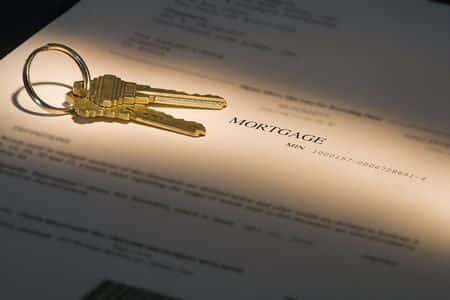
Struggling with a Possible Mortgage Default? It happens every day across America: people struggling to pay their home mortgage look into a modification loan to reduce their monthly payments. Ironically, the bank tells the struggling homeowner that they can’t be helped unless they fall behind on their mortgage. Once the homeowner falls behind, they often hear that no help will be available until they get back on track and current with their mortgage. What is a person to do? Do’s and Don’ts of Mortgage Modification At Harold Shepley & Associates, we’ve developed a 9 point guide to dealing with the subject of a modified mortgage. After you review these “dos and don’ts,” it’s best to talk with an experienced attorney who works with homeowners just like you, every day. Call us at 877-827-9006, or visit our easy-to-use Contact Us page. Never fall behind on your mortgage unless you absolutely cannot keep up with the payments. Many good people have lost their homes because of unscrupulous companies talking them into defaulting on their mortgage in order to help with a mortgage modification. If you do fall behind, try to keep up with your mortgage payments as much as possible. As long as your mortgage company is accepting payments, they will not foreclose. If you can’t make your payment, open up a separate savings account at your local bank and put as much as you can into this account each month. Pretend that this money is already spent. It needs to be off limits to anything other than keeping your home. Once you are behind, don’t be afraid to call up your lender and ask to do a mortgage modification. Some lenders are easy to work with, others are not. Don’t forget that while you are “negotiating” with your lender, your lender is also proceeding with a foreclosure against your property. They won’t stop foreclosure proceedings until the debt is paid or a new arrangement is completely finalized. Ask a professional that can provide actual foreclosure defense to help you. Your lender has attorneys working for them, so you definitely need an attorney working for you. Be careful not to get scammed by a “fly by night” out-of state-company that offers you something too good to be true. Make copies of all your documents before you send them anywhere. Mortgage companies are notorious for losing documentation and requesting copies again and again. Don’t agree to something you can’t afford. Too often people sign mortgage modifications fully aware they cannot make the payments. This could really hurt them because some lenders have policies in place that require a set amount of time between mortgage modifications. Sometimes they even limit modifications to once or twice for the life of the loan. More information about debt relief is available on our page for Debt Negotiation. Call us today at 877-827-9006, or complete our easy to use contact form. We’re ready to help.
What is the Statute of Limitations
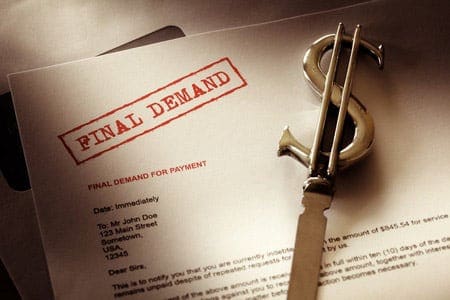
When it comes to Credit Card Debt? If you have old debts, you may be wondering if a creditor is able to collect on them.It is true that debt collectors have only a limited number of years in which to take legal action and sue you to collect. This is known as the “statute of limitations.” Each state allows for a different period of time to collect the debt. Certain circumstances can reset the clock, and in those cases, the debt statute of limitations starts all over again. Most states have debt collection periods of 3-6 years after the first missed payment and some have statute of limitation as long as 10 years. After that time, the unpaid debt is considered “time – barred” meaning that a debt collector can no longer sue on the account. No matter where the debt collector is based, he’s bound by your state’s statute of limitations. What Happens after the Statute of Limitations Expires? After the statute of limitation expires, a debt collector cannot sue for repayment of the debt. However they may continue to contact you about repayment. Once the statute of limitations has passed, you can decide if you will pay a time-barred debt. Each decision has it benefits and drawbacks. The FTC recommends consulting a debt relief attorney before taking action. Choosing not pay to pay a debt collector: Even though a collector can’t sue you to recoup the debt after the statute of limitations expires, they can continue contacting you. Also, refusing to pay your debt will also have a negative effect on your credit score. Making a partial payment to a debt collector: Paying off only some of the debt is risky. In some states, if you pay any amount, the debt is revived and is no longer time-barred. In other words, this resets the statute of limitations clock and debt collectors can once again sue. Paying off the debt: If you choose to pay off the debt, even though the collector may not be able to sue you, this might help your credit score. Some collectors may be willing to accept a less amount that what is owed. They may accept a lump sum payment or installments. However, make sure that you have a written and signed agreement with the creditor that paying this amount will settle your full debt before you begin repaying. This document should state that the entire debt is being settled and that the amount to be paid will release you from any further obligation. Doing this will prevent issues associated with them saying that it was a partial payment on the debt or selling the difference off to another collection company. Keep a record of the payments you make to pay off the debt. Harold Shepley & Associates can Help At Harold Shepley and Associates, LLC, we have the experience you need to deal with situations of old debt and the statute of limitations. We are a full service Law Firm that is client-oriented and will work hard to meet your personal needs in this situation. Call us today at 877-827-9006, or complete our easy to use contact form. We’re ready to help.
Cross-Collateralization

How Your Property can be affected by Cross-collateralization Agreements Cross-collateralization sounds like a frightening legal and financial term. What is it? Simply put, it is the use of one piece of collateral to secure more than one loan. When you apply for a new loan, then your credit union or bank may use collateral that you already posted for and existing loan to act as collateral for your new, anticipated loan. How do I identify a Cross-collateralization Agreement? Read it! Before you sign any loan agreement, you need to spend some time reading the document. You cannot raise an issue with the contract at a later time with the explanation that you did not read it. Most of the time the agreement should have a heading over a section called “Security” or “Security Interest.” If you agree to post any collateral for the loan, then there will be a description of the collateral and most of the time it will be listed in the “Security Interest” section of the contract. As an example, if you are already paying for an automobile loan, and the new loan that you apply for now references the same automobile as collateral, chances are that this is a cross-collateralization agreement. What Lenders use Cross-collateralization Agreements? In our experience, we see that most credit unions use these types of agreements. Because credit unions are careful to minimize the losses to their respective organizations, these lenders typically use cross-collateralization to help guarantee payment on the loans that they issue. Can I Avoid a Cross-collateralization Agreement? Yes. Assuming that you want a small personal loan, then one thing you can do is obtain the new loan from a different lender. A different lender is unlikely to use collateral for its loan in a case where there may be a pre-existing lien on a piece of property. Another suggestion is to avoid borrowing at a credit union if you are concerned that you may unknowingly sign a cross-collateralization agreement. If you need to learn more, call us today at 877-827-9006, or complete our easy to use contact form. How can a Cross-collateralization Agreement affect me? Let’s look at an example. Assume that you obtained an automobile loan at your local credit union and that you are still making payments on the automobile loan. Next, let’s assume that you need to apply for a personal loan at the same credit union. The lender might use the automobile as collateral for your personal loan. If so, this is a perfect example of a cross-collateralization agreement. After the personal loan is issued and you have made several payments on the loan, assume that financial difficulty strikes and you can no longer afford the payment on the personal loan and you just stop making the regular monthly payments. However, you can afford to continue making your regular monthly payments on the original automobile loan. Your lender has several options. It can do nothing; It can sue based upon your breach of the contract; Or it may repossess your automobile. Repossession sounds like a harsh remedy, but it can occur. Why? Remember in this example that the automobile is posted as collateral for the second, personal loan. If you fail to make payments on the second, personal loan it is the same as defaulting on the payments on your original automobile loan! How does Chapter 7 Bankruptcy affect a Cross-collateralization Agreement? If you file a Chapter 7 case, you must inform the court and creditors what you intend to do with property that is posted as collateral for a loan. In some cases it may be necessary to continue making payments on the original automobile loan and the second, personal loan, in the example above. Failure to pay on one of the loans results in a default and the automobile is subject to repossession. A Chapter 7 case will not eliminate your need to make the regular monthly payments on these two loans if you want to keep the automobile. On the other hand, assume that the automobile is old, and perhaps it needs a lot of repairs. Or perhaps you simply cannot afford the monthly automobile payment and the second, personal loan payment. It may be in your best interest to surrender the collateral in a Chapter 7 case and owe nothing more to the lender. The unfortunate part is that you will lose the collateral. However, you may have the opportunity to find a replacement automobile that is affordable based upon your budget. To read more about the way that the United States Bankruptcy Court for the Western District of Pennsylvania has addressed this issue, you may want to read the opinion issued by the Court in Renshaw v. Clearview Fed. Credit Union (In re Renshaw), 447 B.R. 453 (Bankr. W.D. Pa. 2011). Would you like to speak with the attorneys at Harold Shepley & Associates, LLC about cross-collateralization? Call us today at 877-827-9006, or complete our easy to use contact form. We’re ready to help. How does Chapter 7 Bankruptcy affect a Cross-collateralization Agreement? At Harold Shepley and Associates, LLC, we have the experience you need to deal with situations of old debt and the statute of limitations. We are a full service Law Firm that is client-oriented and will work hard to meet your personal needs in this situation. Call us today at 877-827-9006, or complete our easy to use contact form. We’re ready to help.

